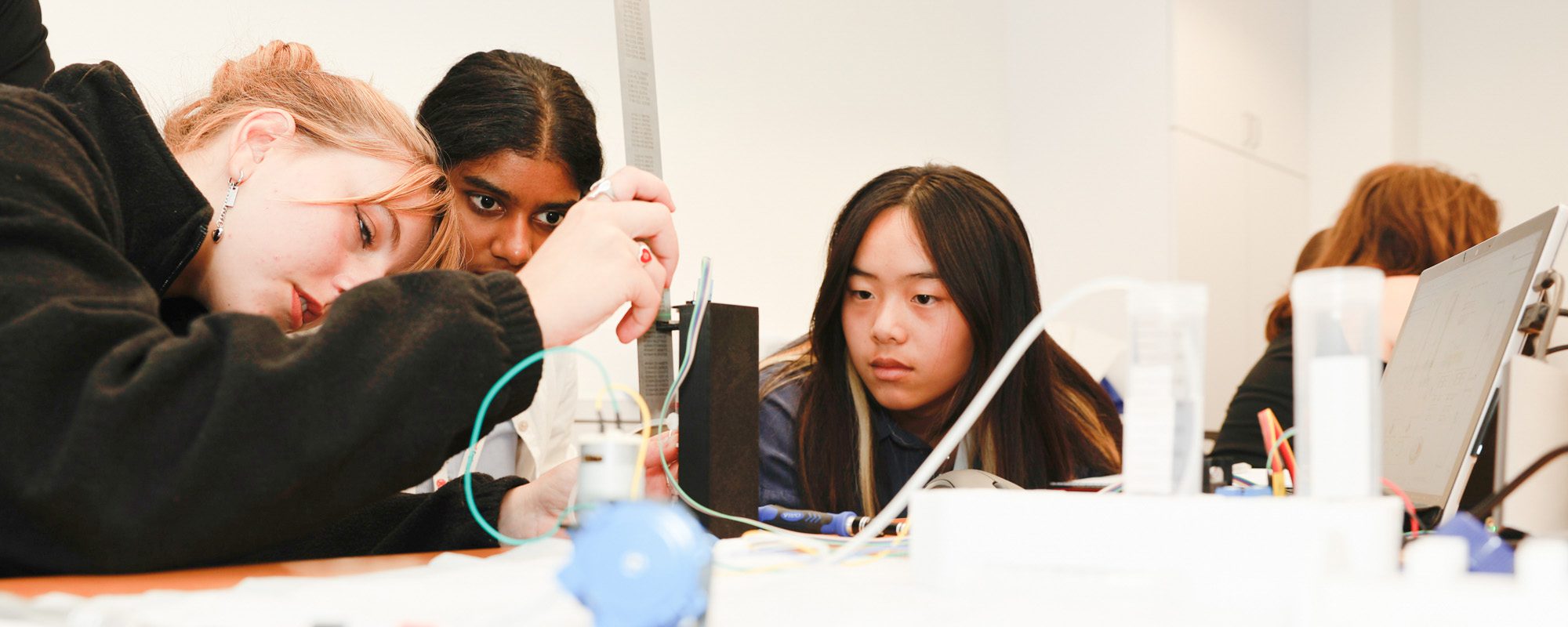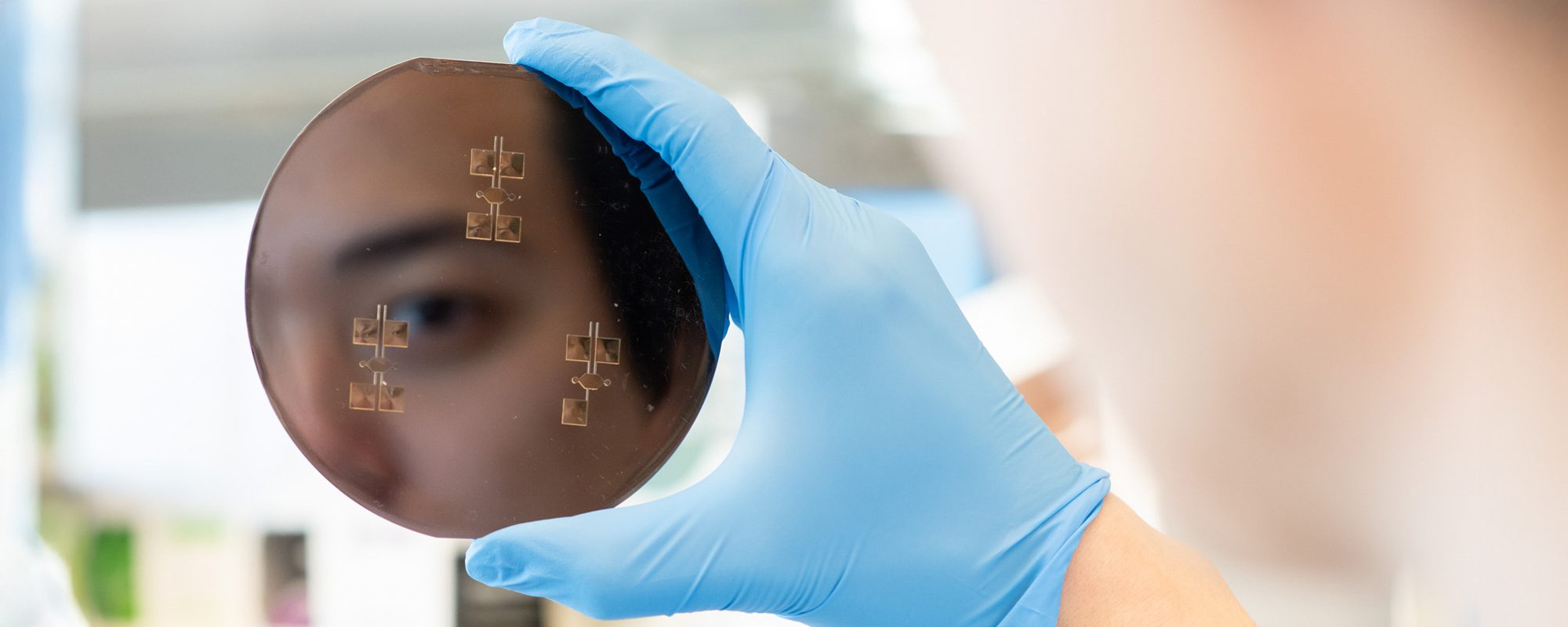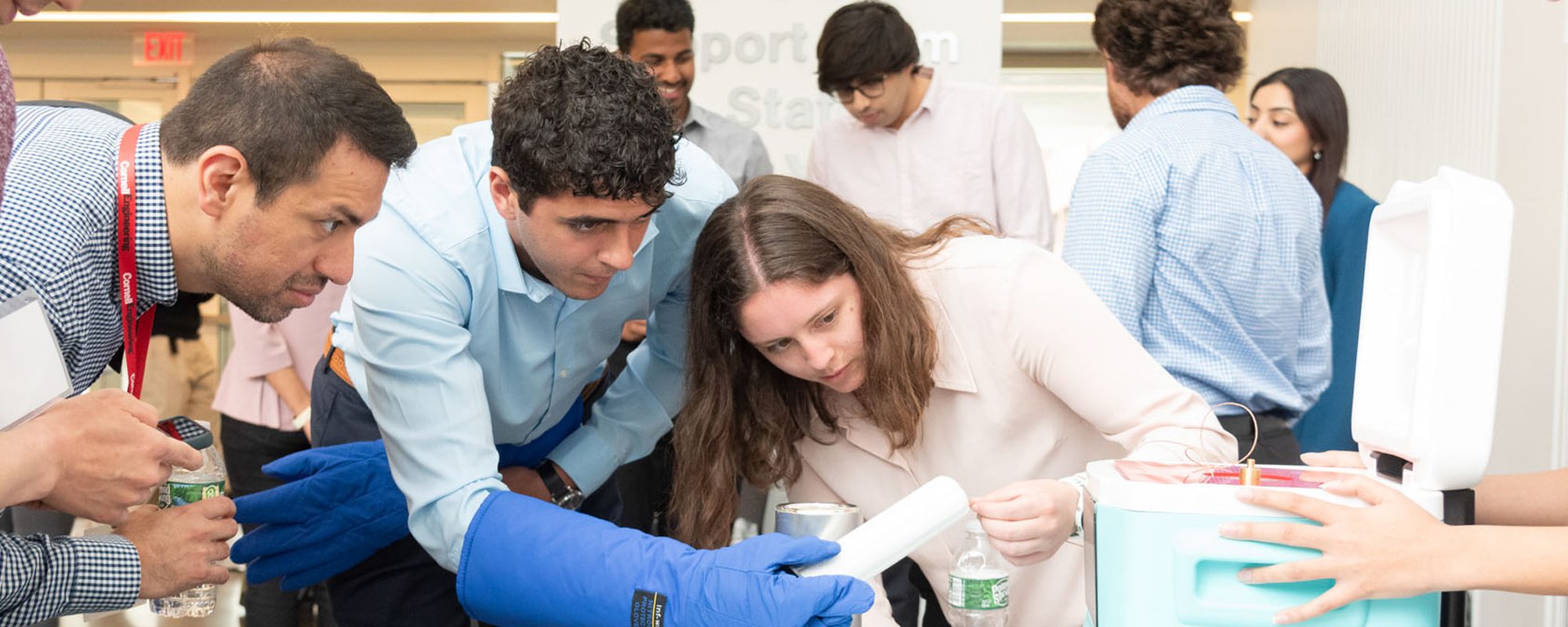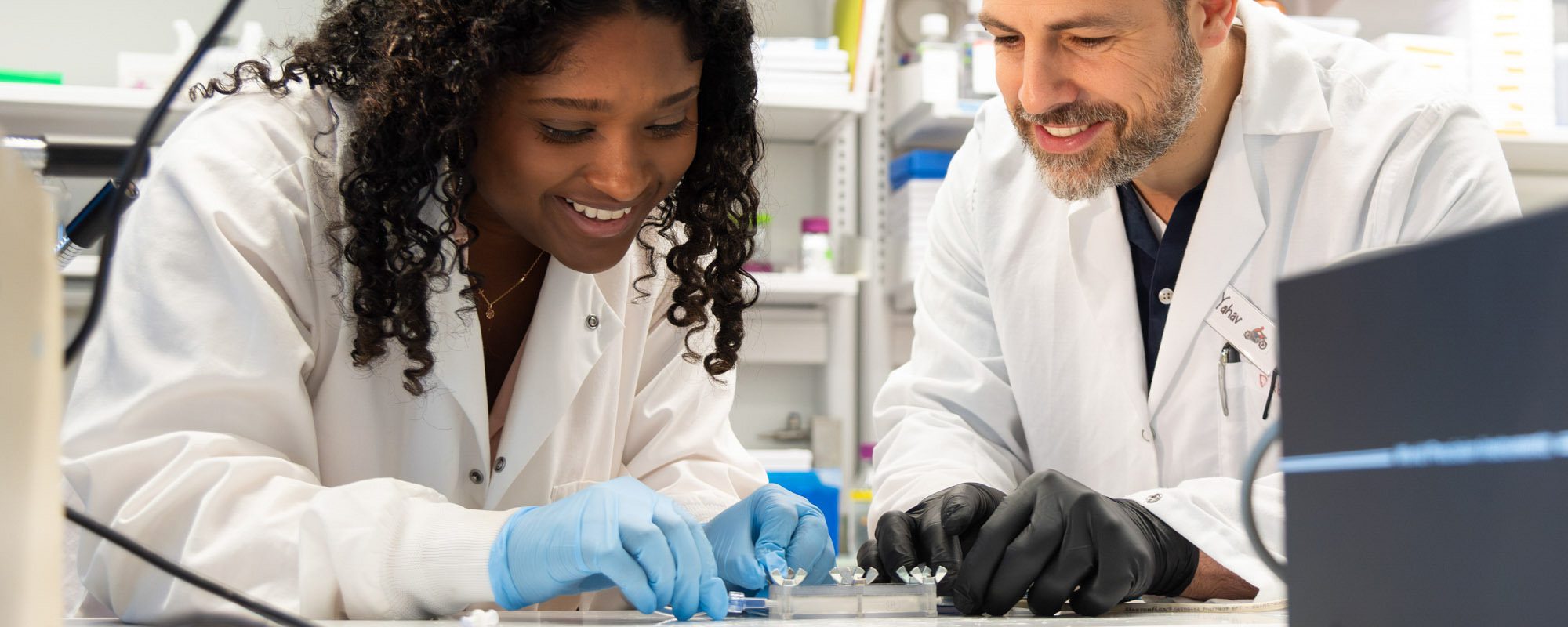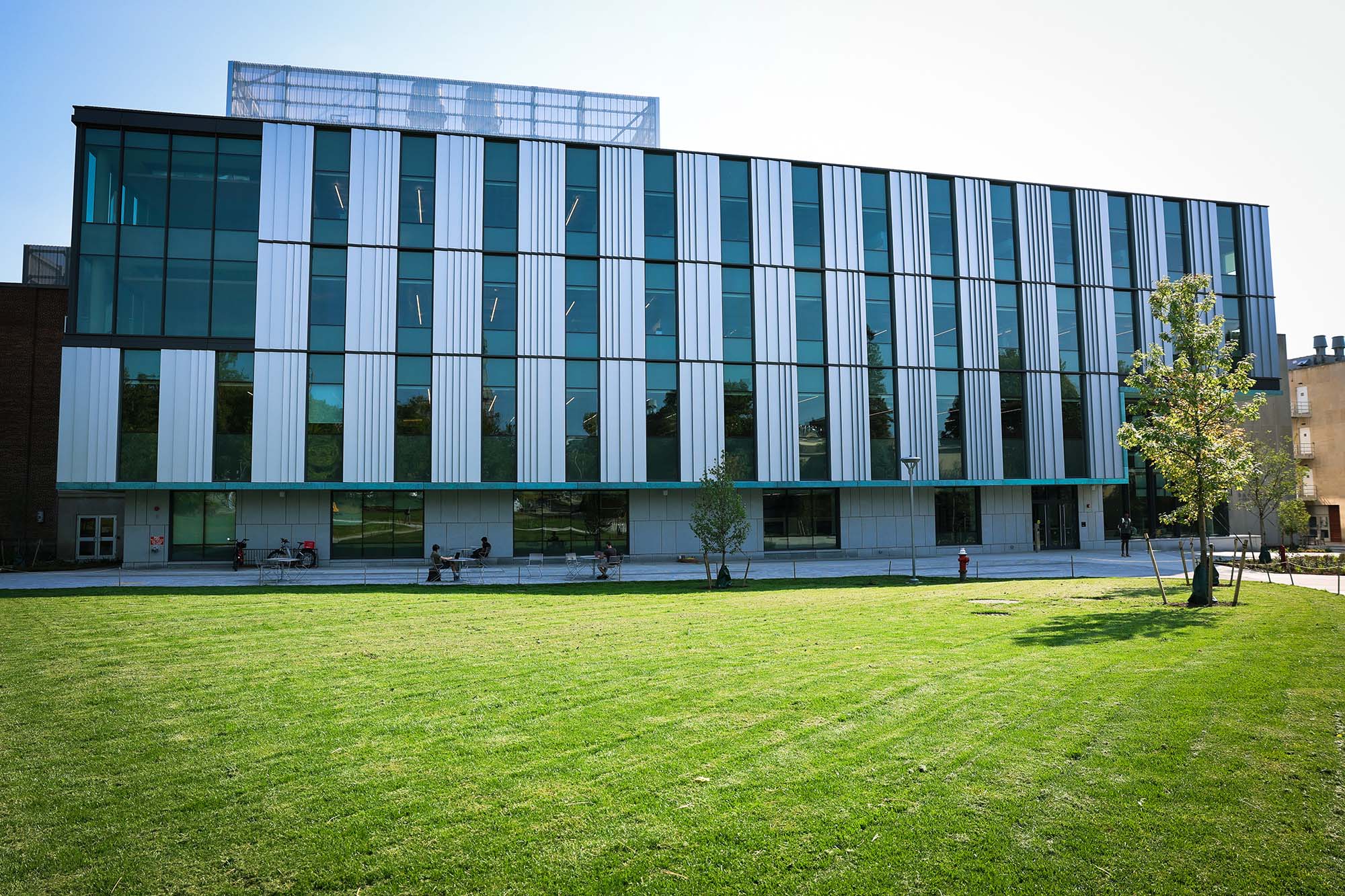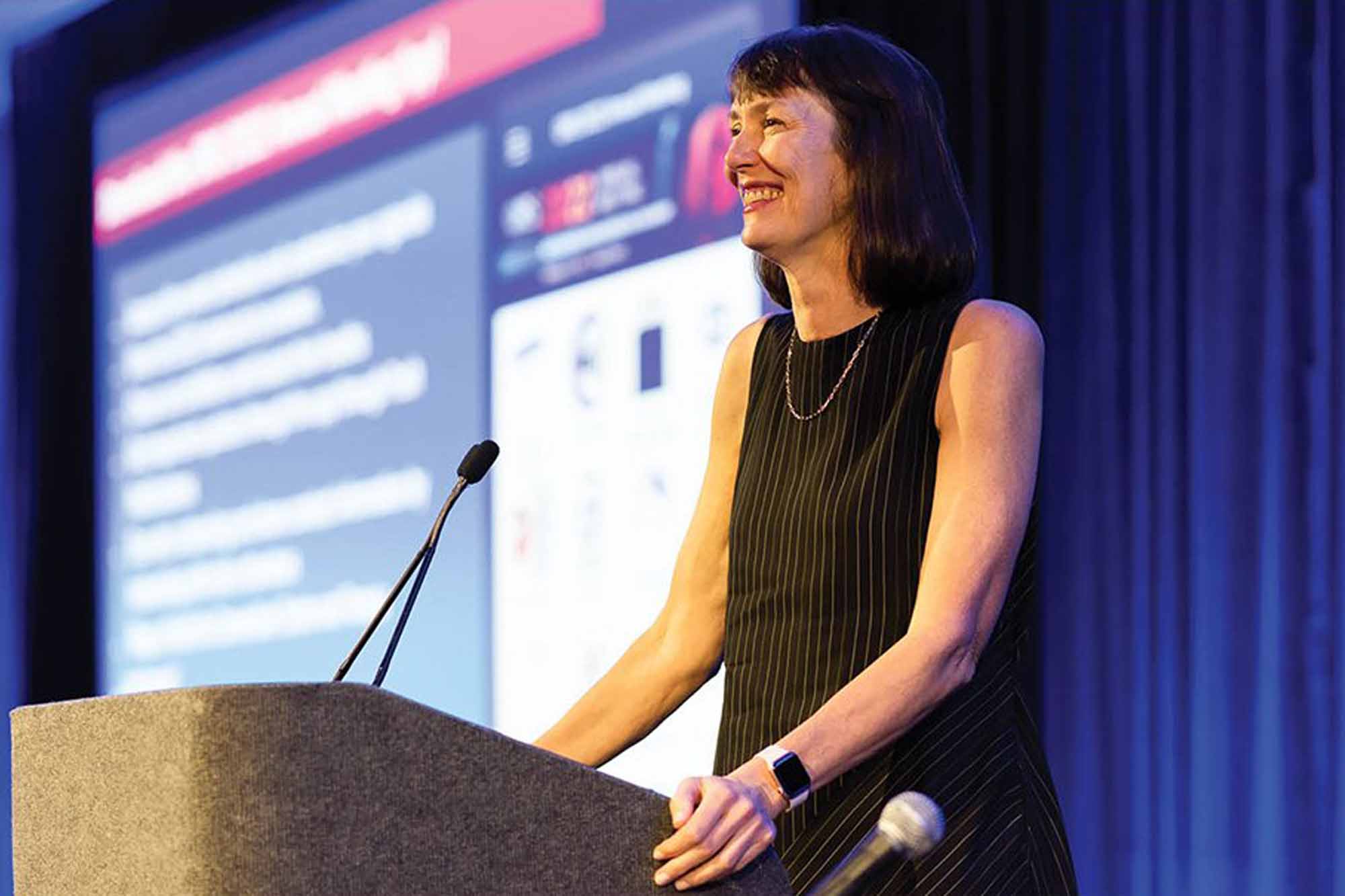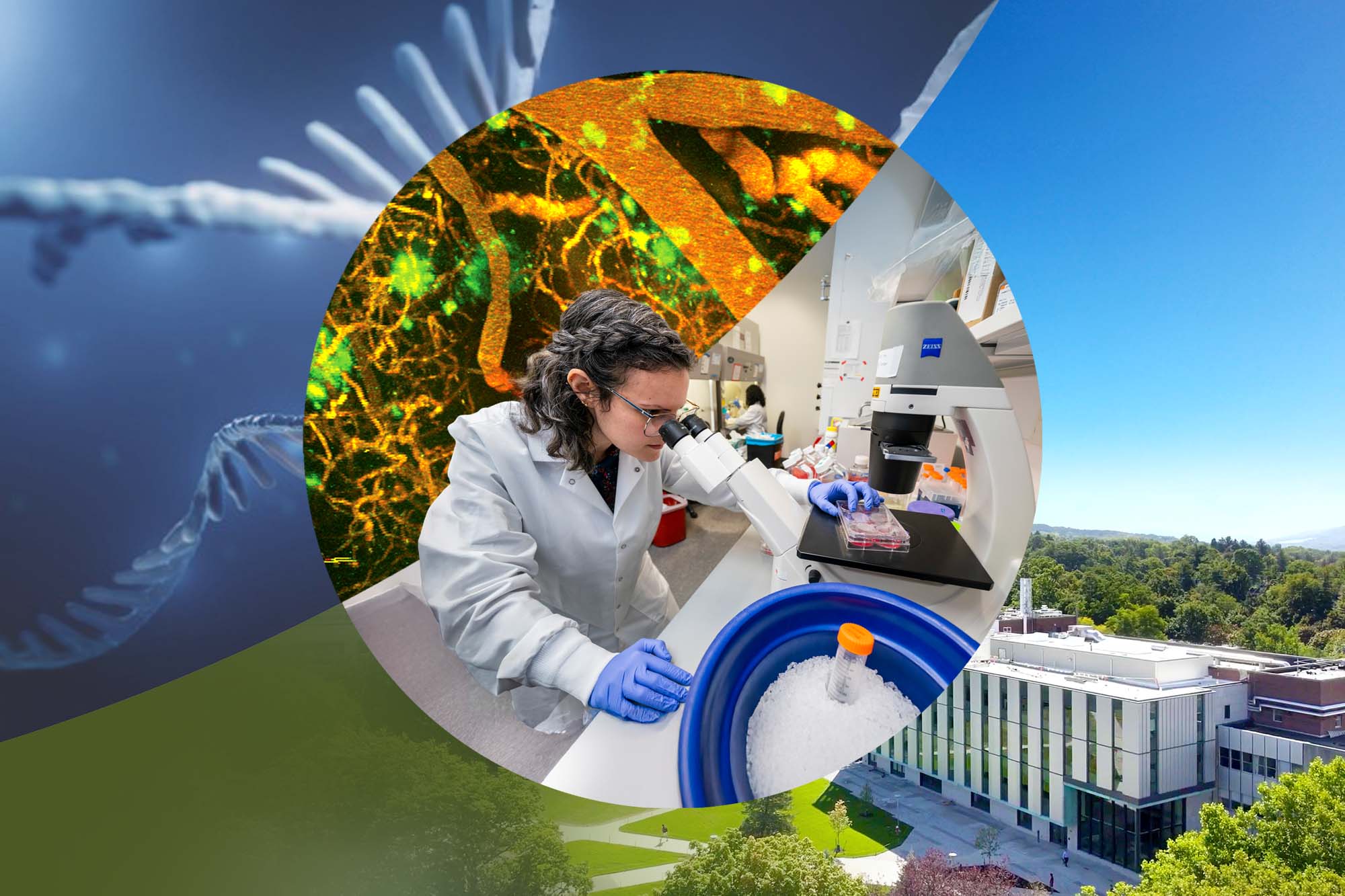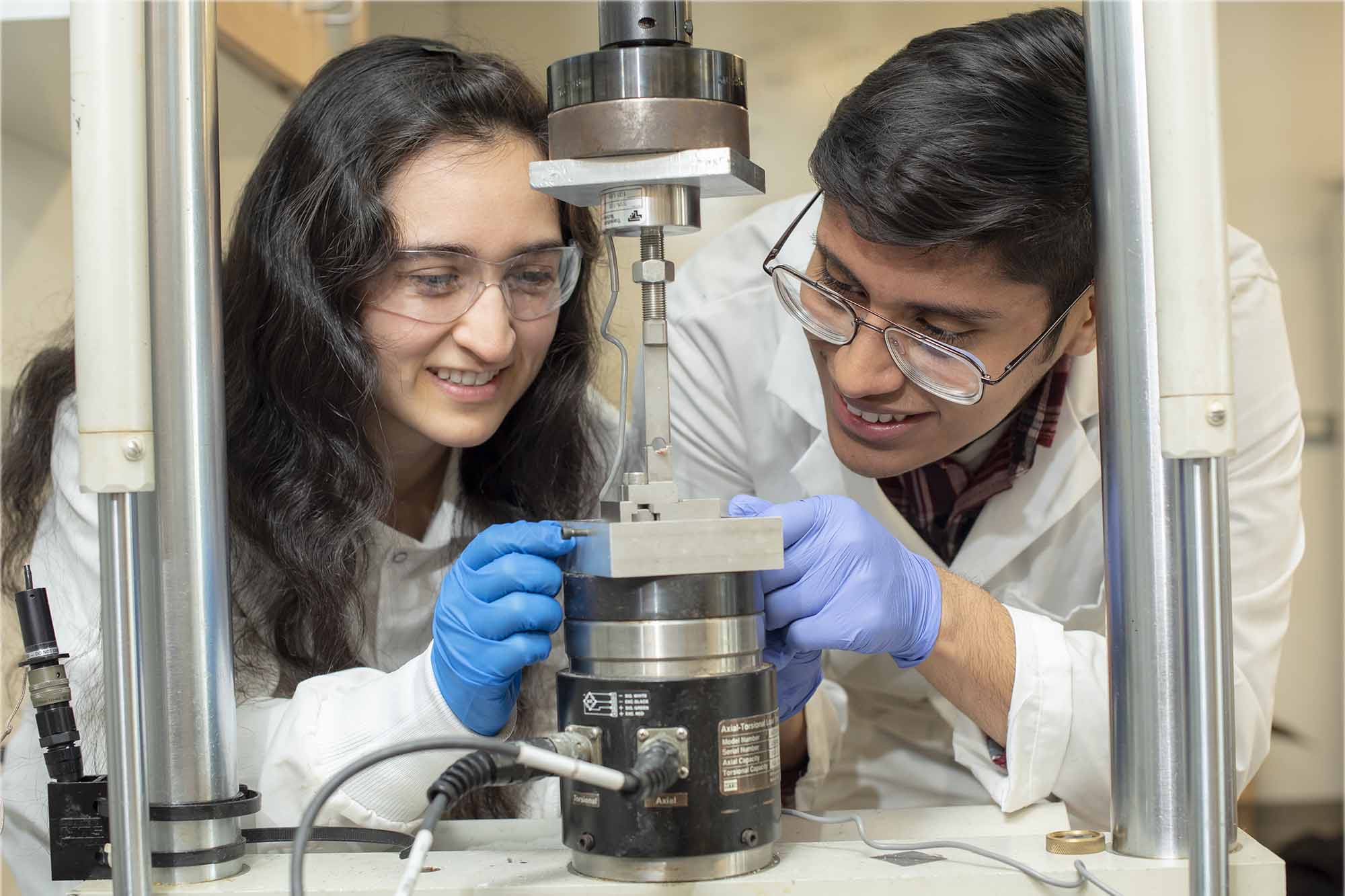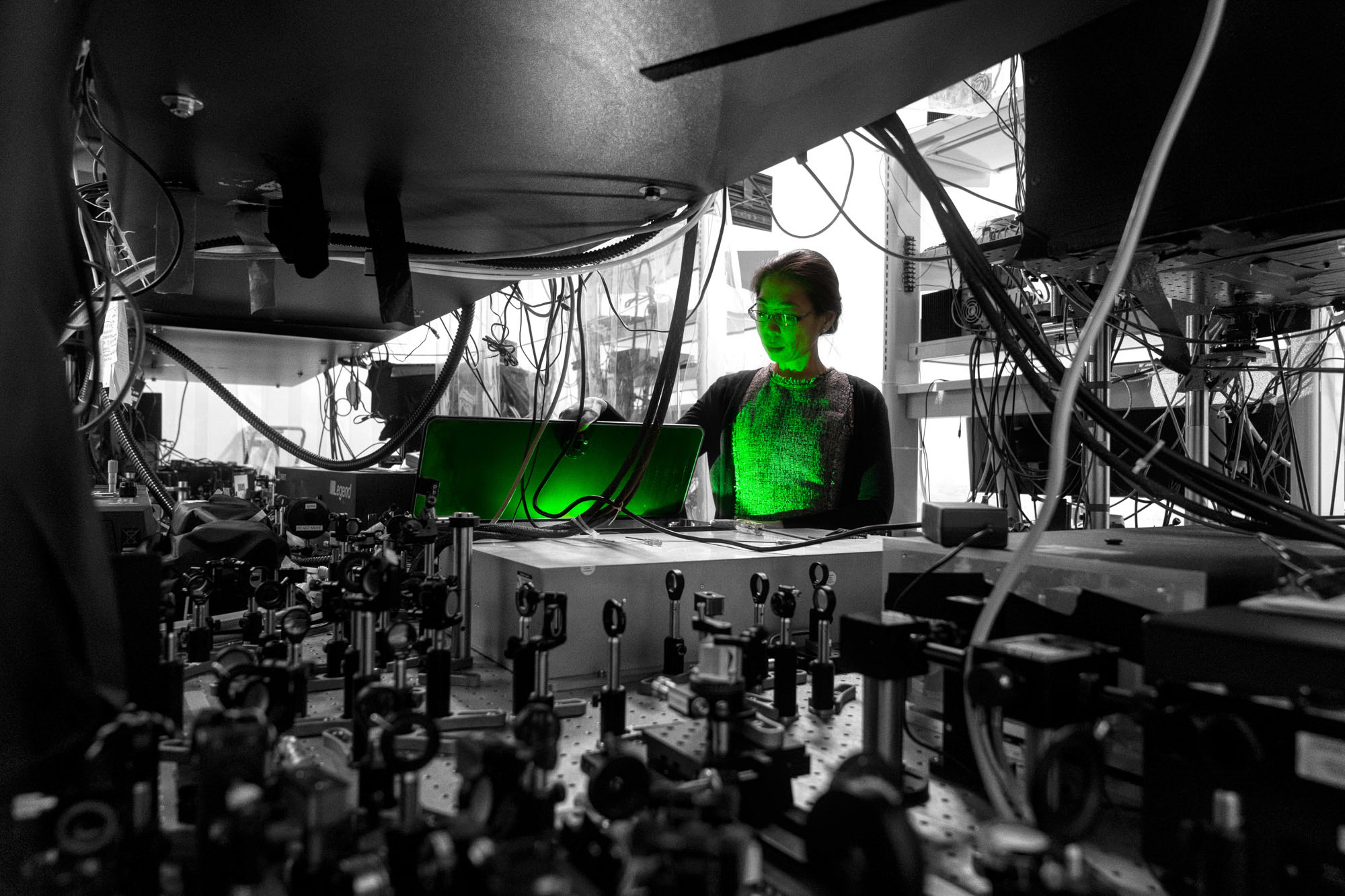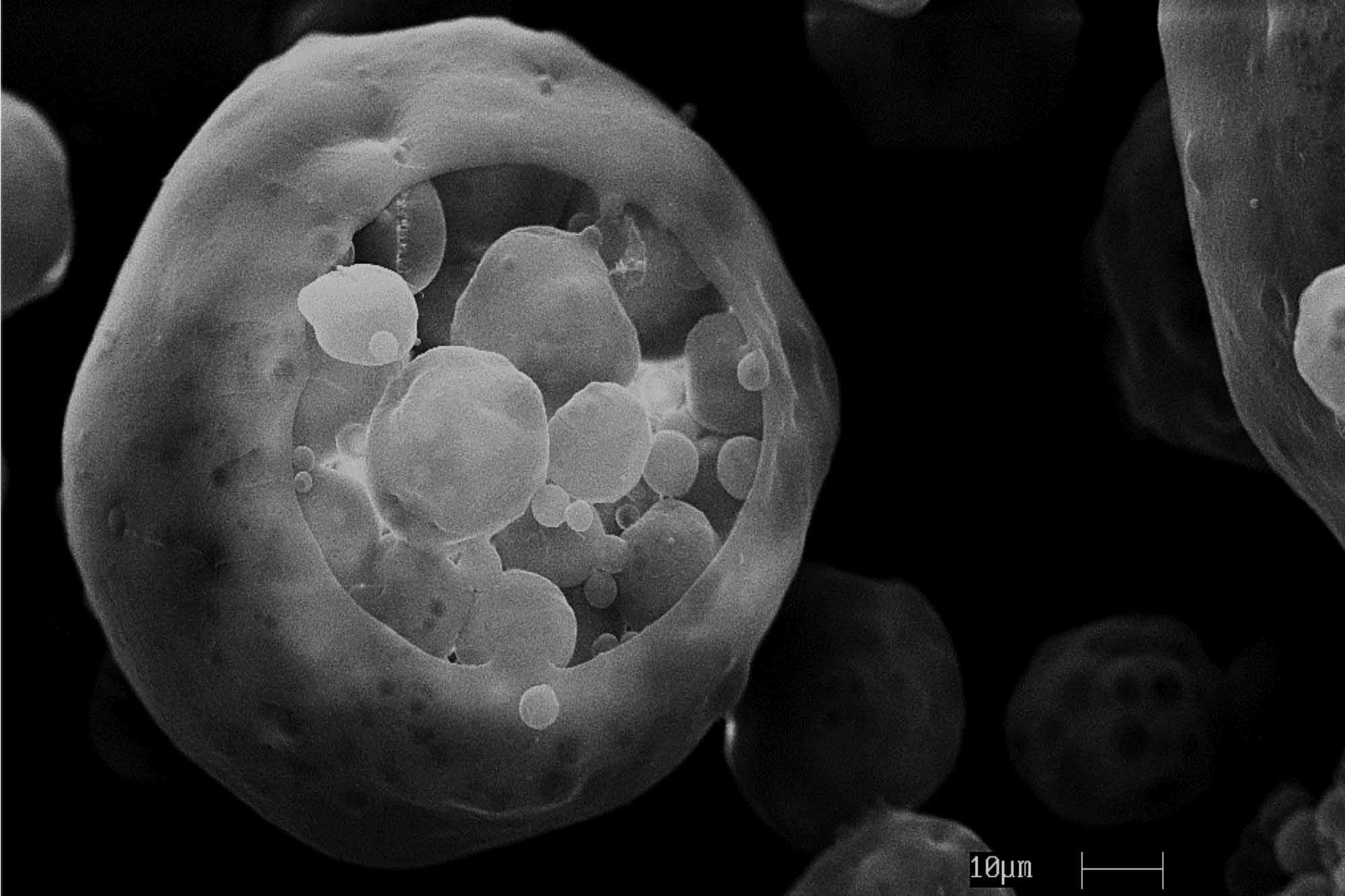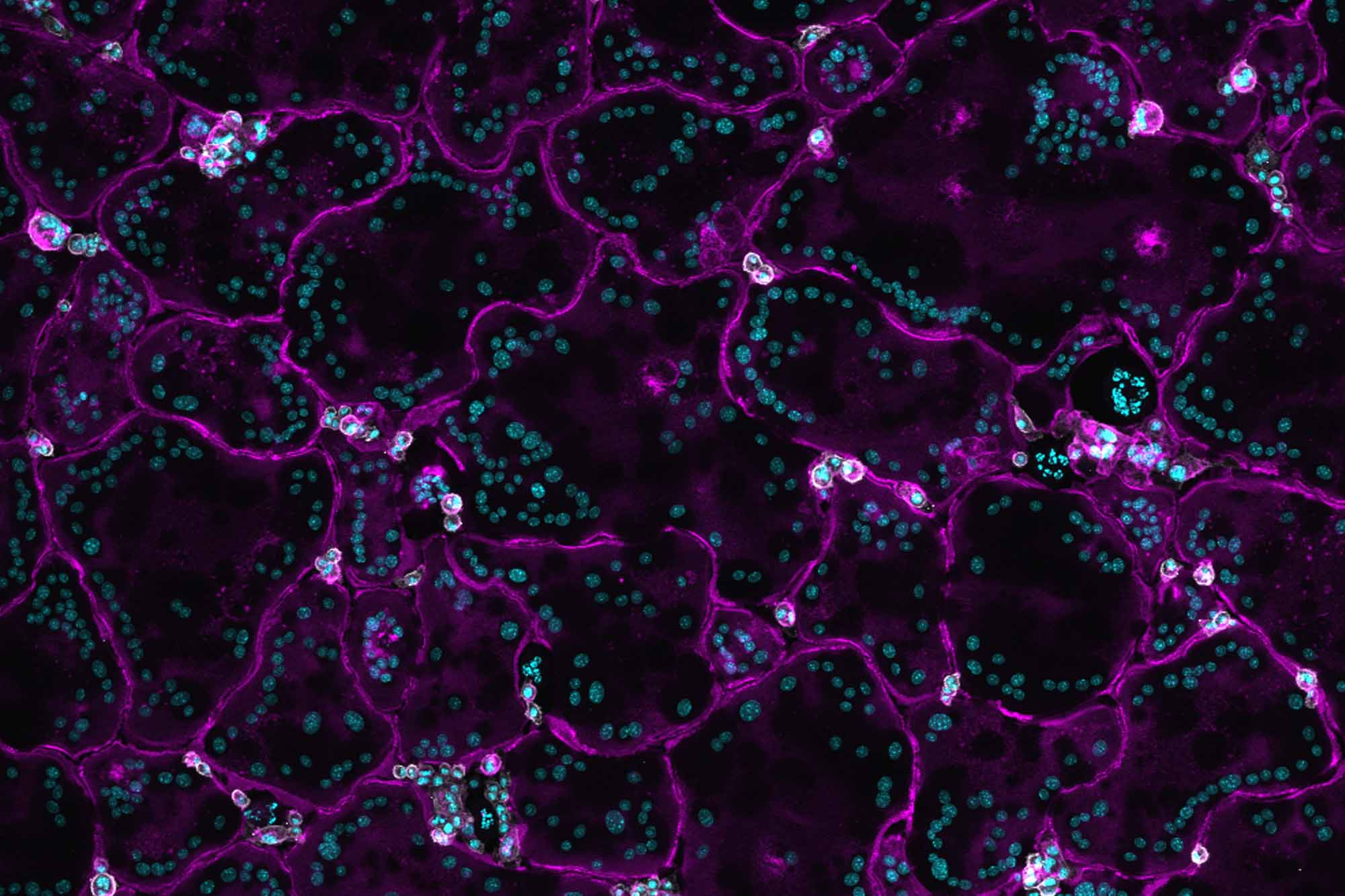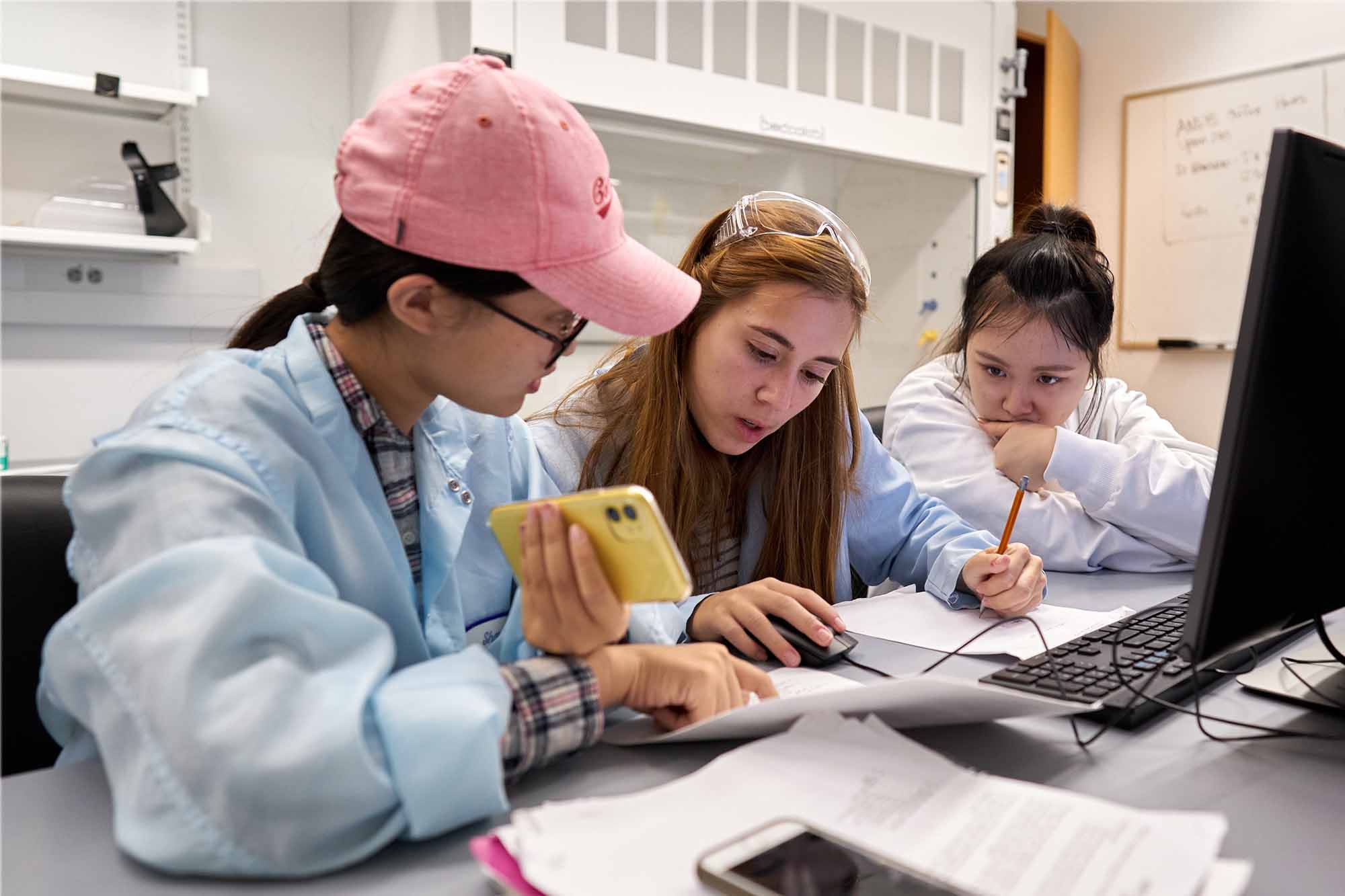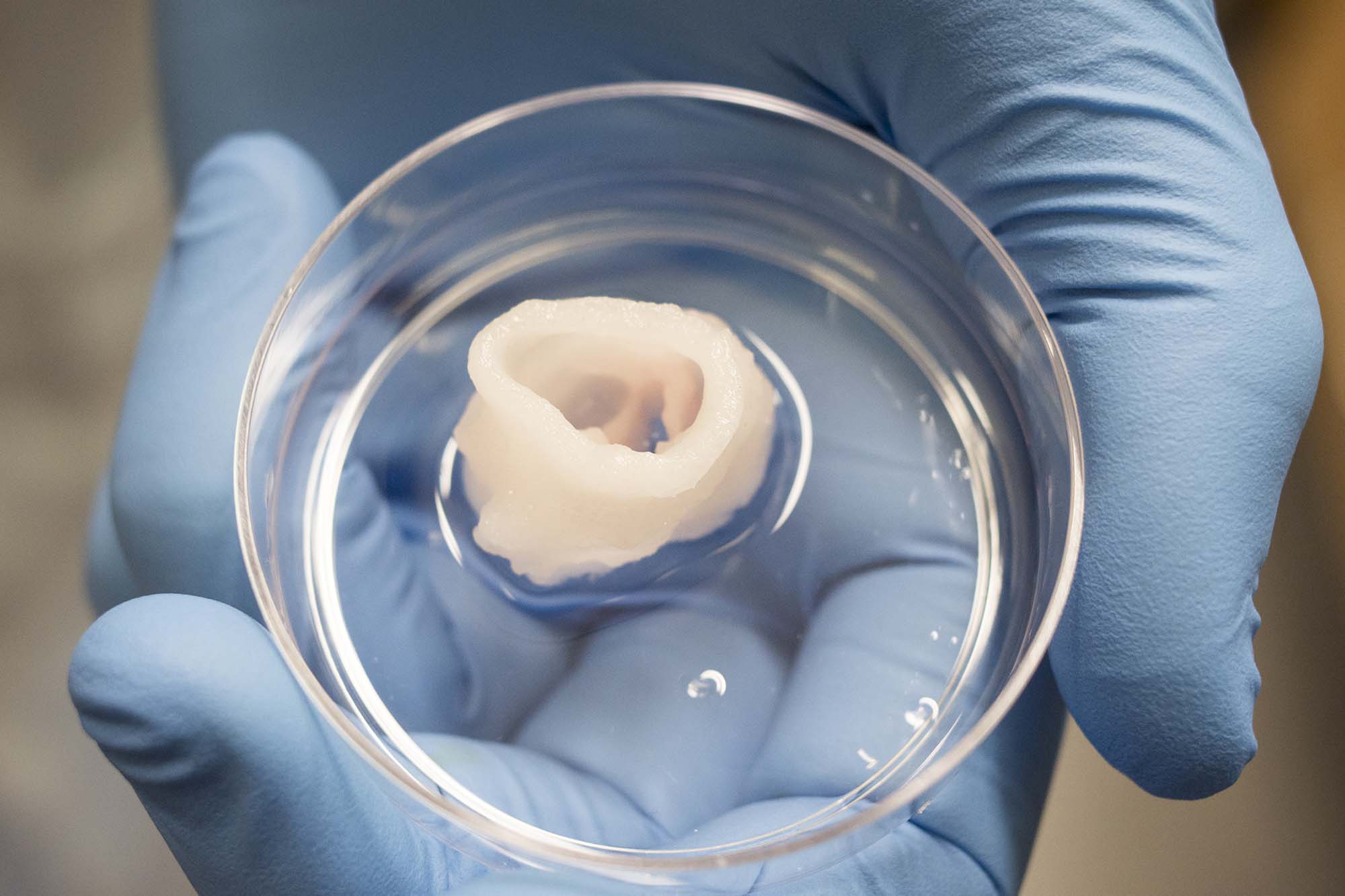Bridging engineering and medicine to better human health.
Biomedical engineering is a bridge connecting engineering and the physical sciences with biology and medicine. We explore the behavior of physiological systems and design effective new biomedical devices and therapies, enhancing life and our understanding of its potential.
Our Programs
Biomedical engineering combines engineering with medical sciences to improve healthcare. Our programs are ideal for those driven to innovate in medical devices, diagnostics, and treatment technologies.
Strategic Research Areas
-
![Two students in white lab coats and protective goggles examine a piece of equipment in the biomechanics lab]()
Biomechanics and Mechanobiology
Investigating mechanical forces in physiological and disease processes.
-
![Professor Nozomi Nishimura conducts an experiment as green light reflects off her in the Schaffer-Nishimura lab.]()
Biomedical Imaging and Instrumentation
Developing imaging technologies and instruments.
-
![scanning electron microscope of outer membrane vesicles used for drug delivery]()
Drug Delivery and Nanomedicine
Designing systems to deliver medicines and measure their effects.
-
![Fischbach-primary osteoclasts on glass]()
Molecular and Cellular Engineering
Applying engineering to cell and molecular biology approaches to identify novel disease therapies.
-
![Undergraduate students work together in lab with computers and calculators]()
Engineering Education Research
Studying education systems to define, inform and improve the education of engineers.
-
![Systems and Synthetic Biology imaging of human heart De Vlaminck Lab]()
Systems and Synthetic Biology
Integrating experimental, modeling, and engineering approaches to dissect complex cellular phenomena at the network-scale.
-
![3d printed heart valve in glass petri dish in gloved hand.]()
Tissue Engineering and Biomaterials
Developing strategies for tissue recreation and modeling systems for research or drug testing.
Upcoming Events
-
![]()
BME7900 Seminar: Shana Kelley (Northwestern)
Continuous monitoring of protein biomarkers using implantable sensors To put disease-related biomarkers to work for continuous monitoring of health and disease, new high-performance technologies are n…
-

BME7900 Seminar: J.D. Humphrey (Yale)
Vascular Mechanobiology – Development, Disease Progression, Tissue Engineering Vascular cells – endothelial, smooth muscle, fibroblasts, tissue resident macrophages – are exquisitely…
-

Engineering Undergraduate Research Poster Session
The Office of Inclusive Excellence is sponsoring its annual Engineering Undergraduate Research Poster Session in Duffield Atrium. This event will feature the work of students who received Cornell Engi…
-

BME7900 Seminar: Bryan Bryson (MIT)
Engineering the host-pathogen interface Mycobacterium tuberculosis is the leading cause of infectious disease death in the world with no licensed protective vaccine. The Bryson Lab uses a combination …
News Highlights
-

3 faculty inducted into 2025 Class of AIMBE College of Fellows
Engineering professors Ilana Brito, Iwijn De Vlaminck and Krystyn Van Vliet were inducted into the American Institute for Medical and Biological Engineering College of Fellows Class of 2025 for contributions to engineering and medicine research.
-

Study to explore nerve-like behavior of bone cells with NSF grant
Cornell biomedical engineers will use the grant to investigate how osteocytes – specialized cells that respond to and regulate forces within bones – interact with and are impacted by the part of the nervous system that controls rest related involuntary functions such as digestion and heart rate.
-

Doctoral candidate selected as IFER Graduate Fellow
Yansong (Harry) Peng, a biomedical engineering Ph.D. candidate, was selected for an International Foundation for Ethical Research Graduate Fellowship for Alternatives to the Use of Animals in Science.
-

From slime molds to corporations, traveling networks chart a new path
A tiny eukaryotic organism provided inspiration for modeling “traveling networks” – connected systems that move by rearranging their structure. Understanding these networks may help explain the behavior of certain biological systems and human organizations.
